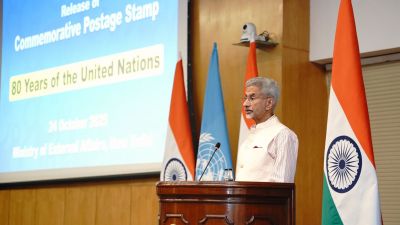Stay updated with the latest - Click here to follow us on Instagram
Loud and Unclear
A Week ago,when David Dhawans Rascals hit the screens,film critics were unanimous in panning it.
Over-the-top comedies continue to rake in money,making industry insiders wonder if the audience for the genre is really diminishing
A Week ago,when David Dhawans Rascals hit the screens,film critics were unanimous in panning it. However,at the end of the first day,when its collections were announced by trade pundits,the Rs 8 crore-figure silenced all skeptics. In next four days,the film that has Sanjay Dutt and Ajay Devgn playing conmen,was declared a hit.
Dhawan has always entertained the masses with his over-the-top and loud comedies. Even though a section of cinegoers might have distanced themselves from such films,the popularity of such movies has never waned. In fact,Dhawans legacy has been followed by other directors,including Priyadarshan,Indra Kumar,Anees Bazmee and Rohit Shetty. They have thrived on the genre of loud comedies by adding their own touch to them.
In the 1990s,Bollywood was going through a phase when most directors looked at simply entertaining the audience. Melodrama was highly appreciated by the audience and directors added this tinge to comedy as well to accelerate it further, says film critic Indu Mirani. But Shetty,who having given comedy a new high through his Golmaal franchise,begs to differ. Comedies have a universal appeal because they are relatable to every age-group,section and region. They work in any era or market condition because everyone enjoys humour and likes to have a good laugh, he says.
True to Shettys words,the success rate of comedies has remained more or less constant in the last two decades. However,
exhibitor Manoj Desai feels that their popularity is slowing down now. Rascals started out very well but a week after its release,its getting mixed responses at the box
office, he says. Desai compares it to the box-office success of Dhawans comedies in the 90s: movies like Judwaa,Hero No. 1 and Biwi No. 1 ran for months at a stretch.
Mirani feels this change is due to the audiences becoming more discerning,thanks to the exposure they are getting to different kinds of cinema. The multiplex culture has somewhere helped differentiate the various genres of cinema and also the audience. The fall in business could be because only the single-screen audience continues to enjoy this kind of cinema, she says. Last year,Tees Maar Khan and No Problem didnt impress at the box office despite having oodles of slapstick humour. Thank You and and Double Dhamaal met with similar fate this year.
Comedies,however,have always been a favourite of Indian audience. Artistes such as Kishore Kumar,Mahmood and directors like Hrishikesh Mukherjee and Basu Chatterjee thrived on slice-of-life comedies. Slapstick made its way into Hindi cinema much later. In the 1990s,Dhawan moved away from making family dramas and romance thrillers like Swarg,Shola Aur Shabnam and Bol Radha Bol,to comedies like Raja Babu and Coolie No. 1. His brand of slapstick comedy has now lasted for over two decades. When I first came into the industry,my idol was Manmohan Desai. I wanted to make films like him,which would be enjoyed by all. As I kept making films,I discovered that comedy is my biggest strength and then stuck to it, he says.
Despite the criticism that
Rascals faced,over-the-top comedies are not fading away any time soon. The fact that in the recent past,Shettys Golmaal 3 and Bazmees Ready have achieved a hit status in the first two weeks of their release,is going to encourage filmmakers. Desai,however,explains that these comedies work because they have an added dose of emotion,drama and action.







